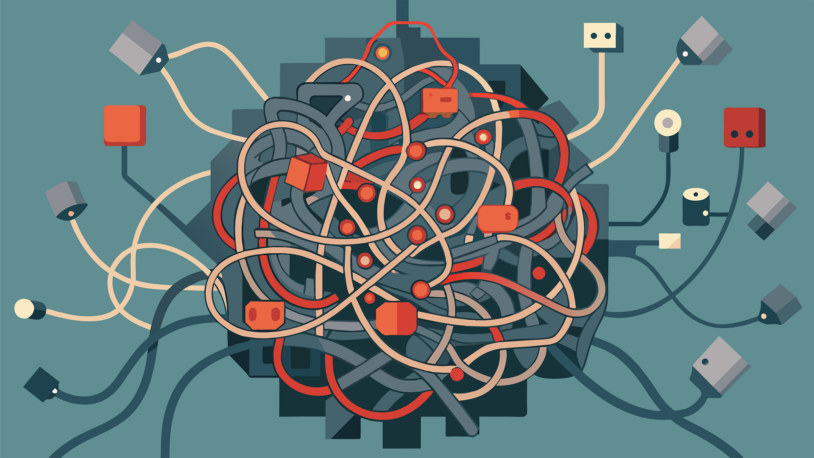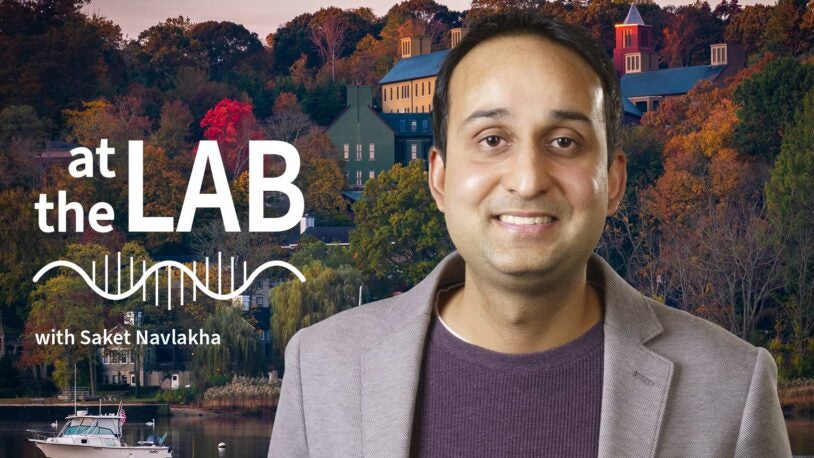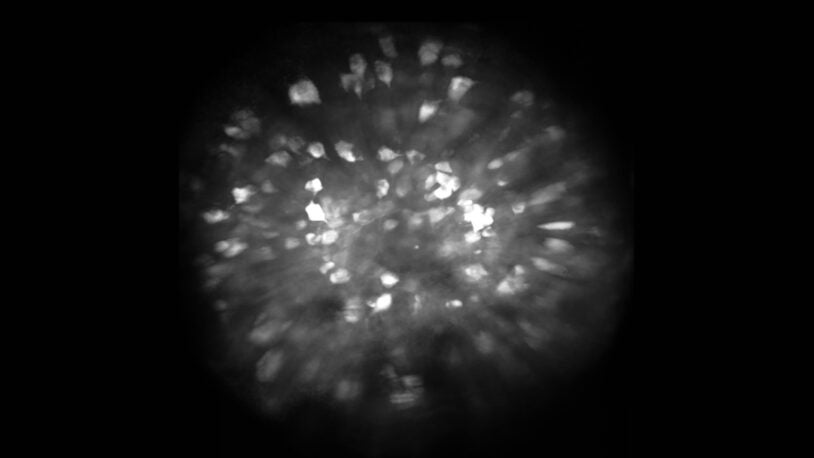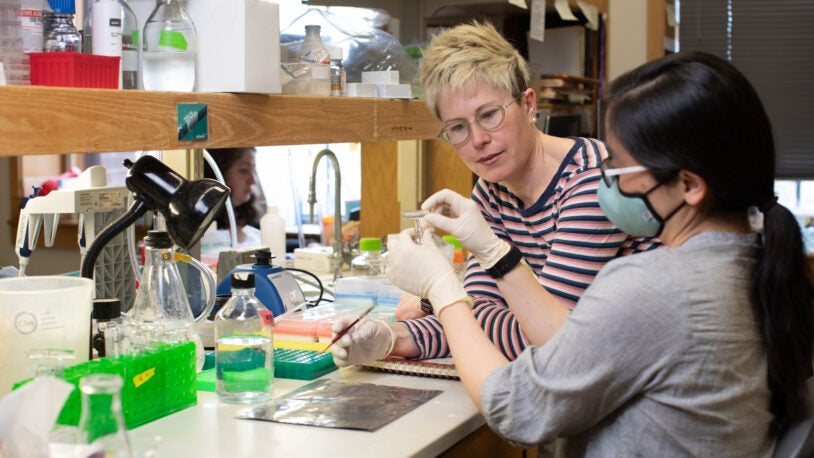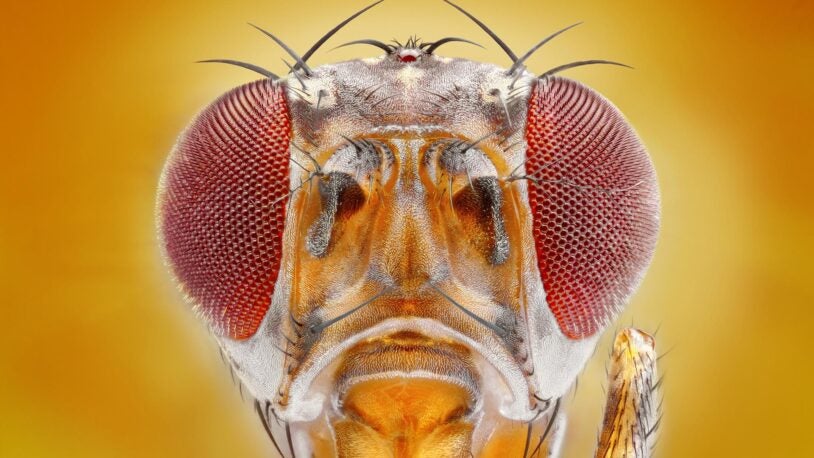
Saket Navlakha
Associate Professor
Ph.D., University of Maryland College Park, 2011
navlakha@cshl.edu | 516-367-5540
Biological systems must solve problems to survive, and their solutions can be viewed as “algorithms.” Our goal is to uncover these algorithms, translate them to improve computer science, and use them to spark new hypotheses about biological function and dysfunction.
Saket Navlakha’s lab studies “algorithms in nature,” i.e., how collections of molecules, cells, and organisms process information and solve interesting computational problems critical for survival. Indeed, there are many shared goals and constraints faced by biological and engineered systems, including: (1) the use of distributed networks as a backbone for information processing and communication; (2) trade-offs between optimization criteria, including efficiency, robustness, and adaptability; and (3) the need to develop low-cost, scalable solutions that conserve important metabolic or physical resources. An algorithmic perspective on biological problem-solving can lead to two ends: (1) new biological algorithms that are simple, flexible, and robust for use in computer science applications, and (2) quantitative frameworks to predict behavior, raise testable hypotheses, and guide experiments. Our lab has most recently focused on studying neural circuit computation and plant architecture optimization from this perspective.
Simons Pivot Fellowship (2024)
NSF CAREER Award (2019)
Pew Biomedical Scholar (2018)
Keynote speaker at NIPS (2016)
The CSHL School of Biological Sciences’ class of 2025
May 5, 2025
The School of Biological Sciences awarded Ph.D. degrees to nine students this year. Read some of their stories and reflections on their time at CSHL.
A perception quiz to blow your mind
March 26, 2025
Ready to think differently about how you see, smell, hear, taste, touch, and make sense of the world around you?
Navlakha named Simons Foundation Pivot fellow
December 5, 2024
The computational biologist teams with CSHL’s Hannah Meyer to explore how the immune system solves problems also common in AI.
At the Lab Season 1 Research Rewind: AI+
October 29, 2024
This season’s final Research Rewind brings us from the realm of quantitative biology to neuroscience, genomics, and beyond.
The nervous system’s matchmaker
September 2, 2024
CSHL’s Saket Navlakha has devised a new computer algorithm that could have many popular real-world applications. His inspiration: the nervous system.
At the Lab Episode 14: What’s that smell?
July 9, 2024
You might not realize, but that question is central to the human experience. On this week’s podcast, CSHL’s Saket Navlakha sniffs out answers.
Smells like learning
October 31, 2023
CSHL research suggests certain neurons help us tell apart different smells while others help us learn to distinguish between similar odors.
Can you outsmart this AI quiz?
February 6, 2023
Think you’re plugged into the latest artificial intelligence advancements? Test your tech knowledge with this quiz on AI and computational biology.
Cold Spring Harbor Laboratory: Foundations for the Future
December 15, 2022
CSHL continues to lead in biomedical sciences by fostering a collaborative, innovative, and high-risk, high-reward research community.
Even fruit flies count
October 25, 2022
Fruit flies know if they’ve smelled an odor once, twice, many times, or never before.
Machine learning helps plant science turn over a new leaf
To detect new odors, fruit fly brains improve on a well-known computer algorithm
Fruit fly brains inform search engines of the future
How plant architectures mimic subway networks
How plants grow like human brains
All Publications
An evolutionarily conserved scheme for reformatting odor concentration in early olfactory circuits
18 Feb 2025 | bioRxiv
Shen, Yang; Banerjee, Arkarup; Albeanu, Dinu; Navlakha, Saket;
A neural algorithm for computing bipartite matchings
10 Sep 2024 | Proceedings of the National Academy of Sciences of the United States of America | 121(37):e2321032121
Dasgupta, Sanjoy; Meirovitch, Yaron; Zheng, Xingyu; Bush, Inle; Lichtman, Jeff; Navlakha, Saket;
Dense and persistent odor representations in the olfactory bulb of awake mice
26 Aug 2024 | Journal of Neuroscience | :e0116242024
Pirhayati, Delaram; Smith, Cameron; Kroeger, Ryan; Navlakha, Saket; Pfaffinger, Paul; Reimer, Jacob; Arenkiel, Benjamin; Patel, Ankit; Moss, Elizabeth;
BATMAN: Improved T cell receptor cross-reactivity prediction benchmarked on a comprehensive mutational scan database
25 Jan 2024 | bioRxiv
Banerjee, Amitava; Pattinson, David; Wincek, Cornelia; Bunk, Paul; Chapin, Sarah; Navlakha, Saket; Meyer, Hannah;
Effects of stochastic coding on olfactory discrimination in flies and mice
Oct 2023 | PLoS Biology | 21(10):e3002206
Srinivasan, Shyam; Daste, Simon; Modi, Mehrab; Turner, Glenn; Fleischmann, Alexander; Navlakha, Saket; Benton, Richard;
Reducing Catastrophic Forgetting With Associative Learning: A Lesson From Fruit Flies
19 Sep 2023 | Neural Computation | :1-23
Shen, Yang; Dasgupta, Sanjoy; Navlakha, Saket;
A neural theory for counting memories
10 Oct 2022 | Nature Communications | 13(1):5961
Dasgupta, Sanjoy; Hattori, Daisuke; Navlakha, Saket;
Special Issue: Biological Distributed Algorithms 2021
7 Apr 2022 | Journal of Computational Biology | 29(4):305
Emek, Yuval; Navlakha, Saket;
A feedback control principle common to several biological and engineered systems
Mar 2022 | Journal of the Royal Society Interface | 19(188):20210711
Suen, Jonathan; Navlakha, Saket;
Neural network features distinguish chemosensory stimuli in Caenorhabditis elegans
9 Nov 2021 | PLoS Computational Biology | 17(11):e1009591
How, Javier; Navlakha, Saket; Chalasani, Sreekanth;




